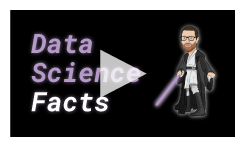Welcome to the new Logically Speaking. With the explosion of data collected, intelligent management of that data is a need by almost every industry. This issue is focused on the big Data Science training opportunity for you.
In this issue:
- Leverage Your Excel Student Base to Grow Your Business
- How to be Successful Selling Data Science Training
- Francis Tuttle Technology Center Recognizes Logical Operations as a Valued Partner for Data Science
- Using Excel to “Pivot” to Data Analytics and Data Science
- Latest Product Highlights
- Train the Trainers in Tableau
- Free TTT Videos for Emerging Tech Topics
- CustomCHOICE Print Webinar
- Conquering the Data Science Skills Gap
- Meet Jason Nufryk, Instructional Designer, Content Group
- Subscribe to Logically Speaking

Leverage Your Excel Student Base to Grow Your Business
What’s your best-selling class? If you’re in the majority, you’re probably already thinking “Excel”. If that’s the case, the best way for you to grow your business is to encourage all your Excel students to return for the next level of training. 
Excel students are working with one thing: Data. We know that companies are sitting on huge amounts of data, and they are looking to make smarter decisions with that data. Excel is just the first step for many aspiring Data Analysts and Data Scientists and one of several tools organizations are using to make better business choices with their data. Software in inprograms like Tableau and Power BI are credible demand and can help you bring your Excel students in for more training at a higher price point. Don’t let them go somewhere else for their Data Science training after they’ve taken Excel training from you.
If you want to grow your business, and you specialize in Excel training, the right path for you is with Data Analytics and Data Science. Check out our five facts around Data Science video and learn how you can offer great training in a field that is experiencing explosive growth.ta Science training after they’ve taken Excel training from you.

How to be Successful Selling Data Science Training
by Jim Gabalski, Vice President Sales and Marketing
Demand for Data Scientists outpaces supply of properly trained professionals by more than 50%. And that translates into a terrific training opportunity!
Data Science is a broad topic, so let me demystify if for you a little bit. To make it easy, think of Data Science as a skill and not a job title. People who need Data Science skills can be found in jobs that typically end with the word “analyst”. To name a few, these include: Financial Analyst, Sales Analyst, Product Analyst, Service Analyst, and Production Analyst. While the data they are analyzing may be different, they each need to be able to manage large amounts of data and efficiently deliver insights from that data. So, the first key to being successful in sellingData Science training is to look for people who have these titles and do this type of work.  There are three key types of analytical approaches that these people are utilizing:
There are three key types of analytical approaches that these people are utilizing:
- Descriptive Analytics – tells a story of what has happened.
- Predictive Analytics – provides insight into what is likely to happen next.
- Prescriptive Analytics – provides guidance on what actions need to be taken to ensure the predicted event happens.
While most training candidates will likely be doing descriptive analytics, such as reporting, knowing which approach a person is using, or more importantly, WANTS to use, will help guide you to the type of training they need. Descriptive analytics can be reasonably accomplished using tools like Excel, Tableau, or Power BI. A much more robust toolkit is necessary for predictive analytics and so a person who wants to do that type of work will likely need training in SQL, Python, or R. Those same tools can be used to support someone interested in prescriptive analytics, but this person will likely have an interest in topics like Artificial Intelligence or Machine Learning. So, the second key to successfully selling Data Science is to recommend the right training for the type of analytics work the person wants to do.
The final key to your success in selling Data Science training: get help when you need it. Logical Operations provides the support you need in the form of videos that provide quick facts and long format webinar reruns. We also have created a Data Science Path that will help you show a student how they can graduate from Excel into more advanced technologies. And lastly, Jedi Jon is here to help you get going. Connect with him through jedijon@logicaloperations.com or follow him on LinkedIn and he can provide you with the sales support you need to get your Data Science training program up and running.

Francis Tuttle Technology Center Recognizes
Logical Operations as a Valued Partner for Data Science

Francis Tuttle Technology Center in Oklahoma City, affiliated with the state of Oklahoma Department of Career and Technology Education, creates training initiatives to address current and near-term industry needs. When looking at what local companies will need in the form of training to be ready to thrive in the era of Industry 4.0, they partnered with Logical Operations to deliver the curriculum for their new data analytics and Data Science initiative.
Recently, Logical Operations’ Jedi Jon (Jon O’Keefe) attended an Economic Development conference sponsored by Francis Tuttle Technology Center titled “The Road to Data Driven Decisions”, where he spoke to members of the Oklahoma Manufacturing Alliance on the current skills gap in Data Science and how internal training of employees is the best solution for them.
“I am very excited that I had the opportunity to present at Francis Tuttle’s Industry 4.0 kickoff event on Data Driven Decisions and look forward to helping them grow their Data Science program,” said Jon O’Keefe, MCCT, Technology Education Jedi at Logical Operations.
If you’re interested in offering Data Science training like Francis Tuttle, Logical Operations has developed a Data Science Certification Path that’s ready to go. This learning track is designed to prepare people with an interest in IT or data analysis to take advantage of the skyrocketing demand for data analysts and data scientists. Learn more.

Using Excel to “Pivot” to Data Analytics and Data Science
 Data Science is the hottest career path for new grads and career changers alike – and today’s hottest training opportunity. But existing professionals may find it’s a challenge to jump from the Excel they know well into the specialized suite of native Data Science tools.
Data Science is the hottest career path for new grads and career changers alike – and today’s hottest training opportunity. But existing professionals may find it’s a challenge to jump from the Excel they know well into the specialized suite of native Data Science tools.
In 2020, Logical Operations is going to offer a new 2-day class, Data Analysis and Visualization with Microsoft® Excel®, expressly designed to bring current Excel users right to the edge of Excel’s data-analysis capabilities and get them eager to pivot into Data Science with Tableau, Power BI, Python, and beyond.
Your learners with workplace Excel experience can start their Data Science journey with Data Analysis and Visualization with Microsoft® Excel® rather than a 3-day MOS-aligned path. Plus, it’s a great alternative for students who might otherwise consider the 3-day Microsoft Course 20779B: Analyzing Data with Excel®.
LO’s course topics will include data analysis and visualization theory and practice; formulas and functions for analysis; statistics and data modelling; data transformation; Excel dashboard creation; and more.
And speaking of dashboards, look for Microsoft® Excel® for Office 365™: Dashboards in 2020, too. This popular 1-day option is perfect for learners who want dashboarding proficiency but who aren’t candidates (yet) for expanded Data Science skills. And it’s a great alternative to the 2-day Microsoft Course 10994B: Data Analysis Fundamentals using Excel®.
With so many options, get in touch with your LO account representative to help guide your customers through this crucial pivot point from the desktop to Data Science.
________________________________________
 Join the Logical Operations Instructor Community on Linkedin.
Join the Logical Operations Instructor Community on Linkedin.
It is a place for instructors to connect with colleagues to share ideas,
feedback, and insights related to instructor-led training.
________________________________________
Latest Product Highlights
Here are some of the courses recently updated to support your Data Science training. For a complete list download the Product Summary Guide below.
- Microsoft® Excel® for Office 365™: Data Analysis with PowerPivot
- Microsoft® Power BI®: Data Analysis Practitioner
- Microsoft® Power BI®: Data Analysis Professional
- Microsoft® Excel® for Office 365™: Part 3
- Microsoft® SharePoint® Modern Experience
- Python API Development Fundamentals
Download the latest Product Summary Guide to see the full list of available titles >

Train the Trainers in Tableau
One of the biggest challenges we hear from our training partners around Data Science is that they don’t have instructors for the required courses in a Data Science and Analytics curriculum. Logical Operations is here to help with that, starting with one of the most popular tools for data visualization and analytics: Tableau.Tableau is the next step beyond Excel for many of your students, and it also represents a great next step for your Excel instructors. By combining their experience in Excel with Logical Operations curriculum and Train the Trainer videos, any Excel instructor can get up to speed on Tableau quickly and start offering classes.
If you’re interested in bringing back 10-20% of your Excel students per year, start offering Tableau. Contact your Logical Operations representative to learn more about how we can help.
________________________________________
Free TTT Videos for Emerging Tech Topics
Our emerging tech partner, Packt, now includes free train the trainer videos with select instructor courseware purchases. Look for titles that state (TTT Videos Included) in the title. You can find them here.
________________________________________
CustomCHOICE Print Webinar
Join our 30-minute Custom Print Webinar to learn how to customize Python, Tableau and other LO Authorized Courseware through our online tool, CustomCHOICE.
Date: Tuesday, January 14, 2020
Time: 10 AM EST
Speaker: Andrea Montanarella, Custom Publishing Manager
Topics of interests:
- Demo of the CustomCHOICE tool
- Branding the cover using logos and/or cover art
- Available courses to customize including Data Science courses
Custom is a cost-effective solution that transforms any learning environment by customizing specific learning objects in YOUR timeframe.
Register Now!>
*Discounted pricing will be available for all registered participants.
*Contact Andrea Montanarella for more details @ 1-800-456-4677 Option 4 | 585-350-7014 | cprint@logicaloperations.com.

Conquering the Data Science Skills Gap
by Patrick DiLaura, Chief Talent Officer
 One of the biggest challenges organizations are facing today is making informed business decisions based on their data. A recent survey [1] suggested that less than 50% of all businesses are using data effectively, but 75% of businesses want to get better value out of their data. The main reason for this is the large skills gap in the market for Data Science and Analytics. There are just simply not enough trained professionals to meet the hiring demands in the market.
One of the biggest challenges organizations are facing today is making informed business decisions based on their data. A recent survey [1] suggested that less than 50% of all businesses are using data effectively, but 75% of businesses want to get better value out of their data. The main reason for this is the large skills gap in the market for Data Science and Analytics. There are just simply not enough trained professionals to meet the hiring demands in the market.
That leaves organizations with two choices. They can continue to look externally for qualified candidates, with the average Data Science job search and hire taking a little over 6 months [2] to complete, or they can turn to internal employees and offer them practical training on a Data Science skillset. With employee retention and training being the main concerns for HR departments in 2019, it’s easy to see why organizations will be looking at the latter option.
Investing in your employees is always a good bet, and with the current strong jobs market, offering the ability to become a Data Analyst or Scientist to your internal staff may be exactly the reason they choose to stay with your company.
________________________________________
[1] https://bi-survey.com/data-driven-decision-making-business
[2] www.Indeed.com
________________________________________
Meet Jason Nufryk, Instructional Designer, Content Group
 I’m a Rochester native who first began working for Logical Operations as an intern in November of 2012. I saw an opportunity to develop my passions for technology and writing into a career, and I was hired full time the following May.
I’m a Rochester native who first began working for Logical Operations as an intern in November of 2012. I saw an opportunity to develop my passions for technology and writing into a career, and I was hired full time the following May.
As an Instructional Designer, I design and develop courseware that is used every day to teach professionals the skills they need to succeed in the business world. I’ve developed courses in several technical fields, including cybersecurity, application development, and—most recently—Data Science.
Several years ago, I learned how to program in Python while preparing to write our Python Programming: Introduction course. Back then I had no idea Python was such a popular tool in the Data Science world. I thought of it as a simple scripting language, a language to help teach students the fundamentals of object-oriented programming. I was surprised to learn just how many robust Data Science libraries there are in Python, and how much demand there is for a workforce that has skill in these libraries.
This is what I love about LO—that I’m encouraged to learn and develop my skills in some of the most interesting topics. I’m also lucky enough to be supported by a team that has the same passion for learning.


